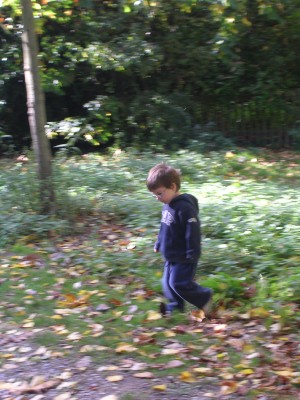The Child Within
 It’s a poignant and powerful moment in therapy when a client reconnects with a significant childhood memory. These moments don’t usually come early on. They are more likely to occur after a number of sessions, as the therapy goes deeper, and the alliance, the trust, between client and therapist has grown.
It’s a poignant and powerful moment in therapy when a client reconnects with a significant childhood memory. These moments don’t usually come early on. They are more likely to occur after a number of sessions, as the therapy goes deeper, and the alliance, the trust, between client and therapist has grown.
Clients usually arrive in therapy with a presenting issue. It may not be the real issue, but it’s something to start with. It may take up a few sessions, but more often than not it’s a smoke screen, covering the real root of trouble in the client’s life.
For a client to arrive at, and then reveal, a childhood source of pain is always significant. It will be both revelatory and at the same time intensely difficult, because at some level the responsibility for this hurt lies with a parent, and to admit this is very hard. The classic myth of a happy childhood, which we all would like to have a share in, is shattered, and with it the sense of innocence that we feel is the child’s fundamental right.
It is also a moment, no matter how emotional, how distressing, when healing can begin. Because without this realisation, the individual is not living out of their own truth. They’re living a well-constructed illusion, a lie, to make themselves – and everyone else – more comfortable. Admitting a lack of perfect parenting on the part of mother or father, an unhappiness in the relationship with either or both parents, destroys the picture of the loving family, the good home where each one is treated well, looked after, kept safe.
To admit that as a child one did not feel safe, that one’s parents were not able to give one that important sense of security, is indeed hard. But acknowledging that this was the case, and coming to terms with the resulting impact, also brings a sense of peace. This new awareness is deeply personal, it takes time to process and integrate, but ultimately it proves liberating and opens the way to true self-esteem. It doesn’t happen overnight. But even a glimpse, at a certain stage, of a different and better way of being, is massively encouraging.
These are the kind of heart-felt statements you may hear from clients as they approach or arrive at this moment of truth:
‘I want to stop hating myself. I want to feel good about myself.’
‘I want to feel fully alive.’
‘I want to connect with my feelings, I don’t know what it means to really feel.’
‘I want to be able to love, to know what it feels like to be loved.’
Today, glancing through the posts on my Facebook page, I notice the many, nicely illustrated, inspirational quotes and statements that seem to say: whatever anyone else seems to think, you are wonderful/awesome/brilliant/a good person. They suggest all you have to do is believe this, and your life will suddenly, miraculously, be everything you want it to be. This kind of mind candy might perk you up when you’re having a vaguely annoying day, but for someone who is struggling, as they have struggled all their lives, with the consequences of childhood trauma, you can see how it might have the opposite effect.
There’s no point in pretending. It’s a long road to wellness. As any therapist could tell you, there are moments when you think to yourself, can there really be this much hurt in the world? Yes there can. But, thankfully, there is also treatment and recovery.
It is difficult, sometimes harrowing, and always deeply moving, to accompany a client on their journey of self-discovery. But it’s also wondrous to see how a person’s life can take on new colour, new meaning; to see the wounded child give way to a self-aware, self-accepting adult.
This, as a therapist friend of mine so aptly described it, is ‘the beautiful work of healing’.
